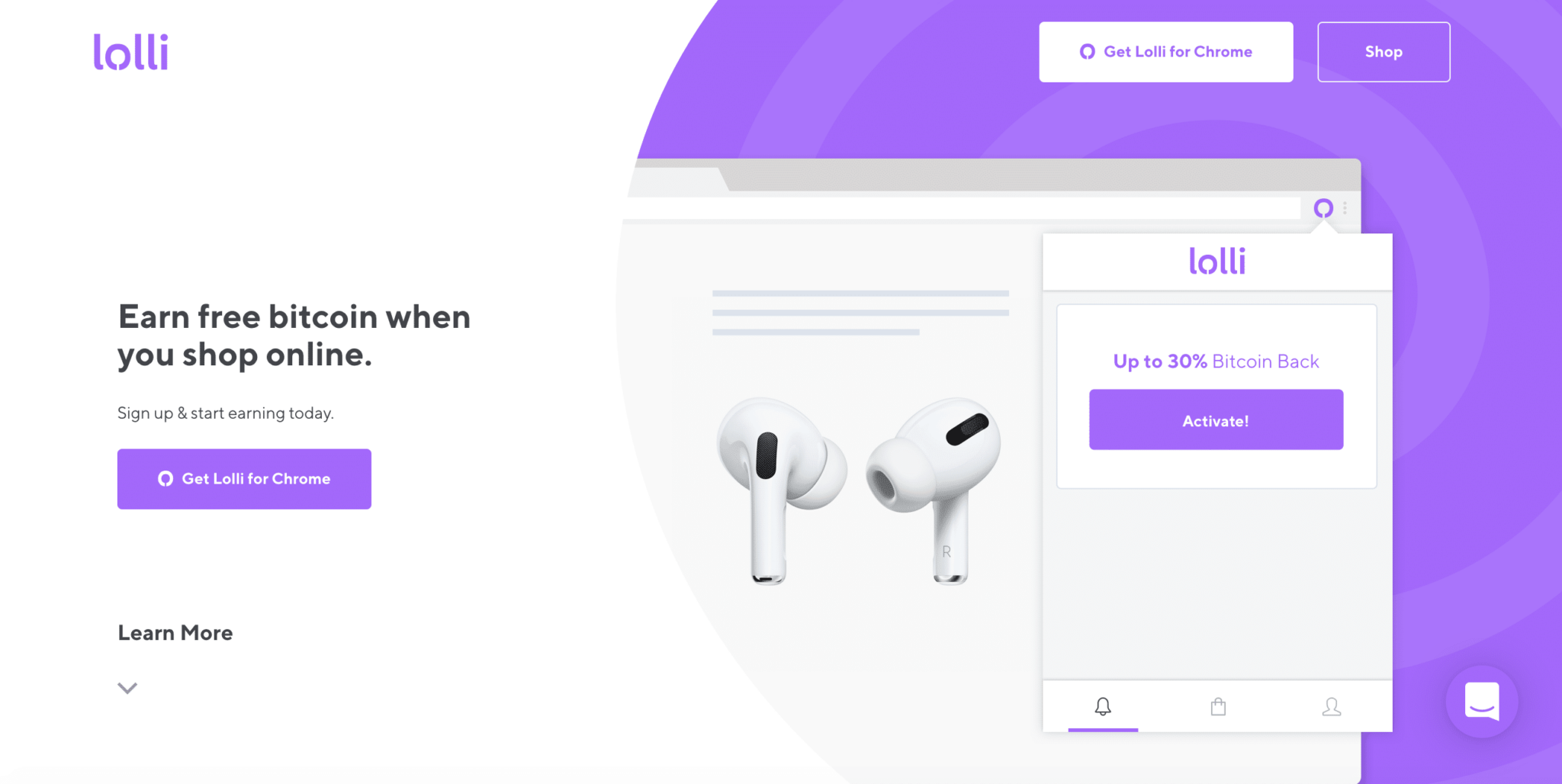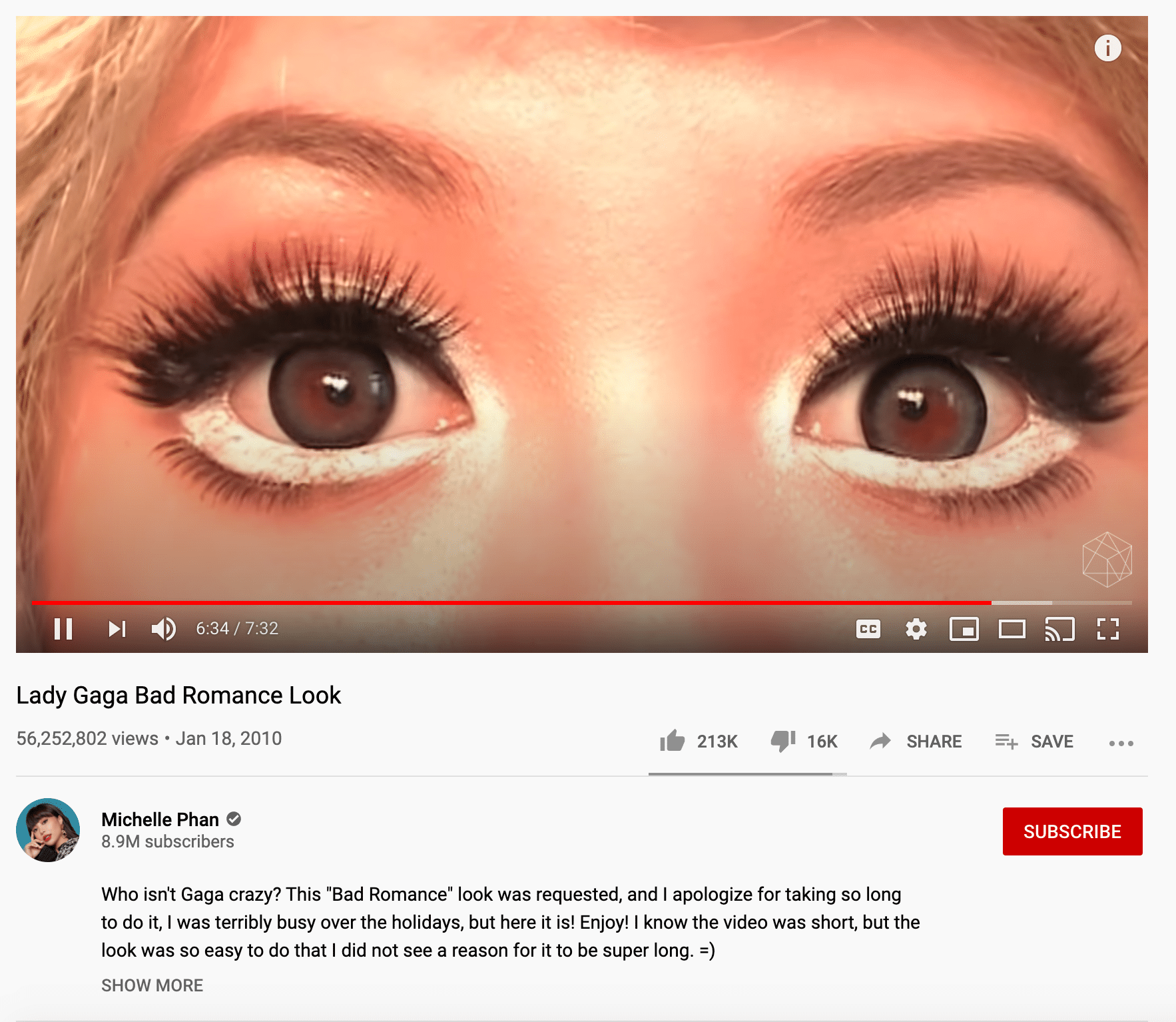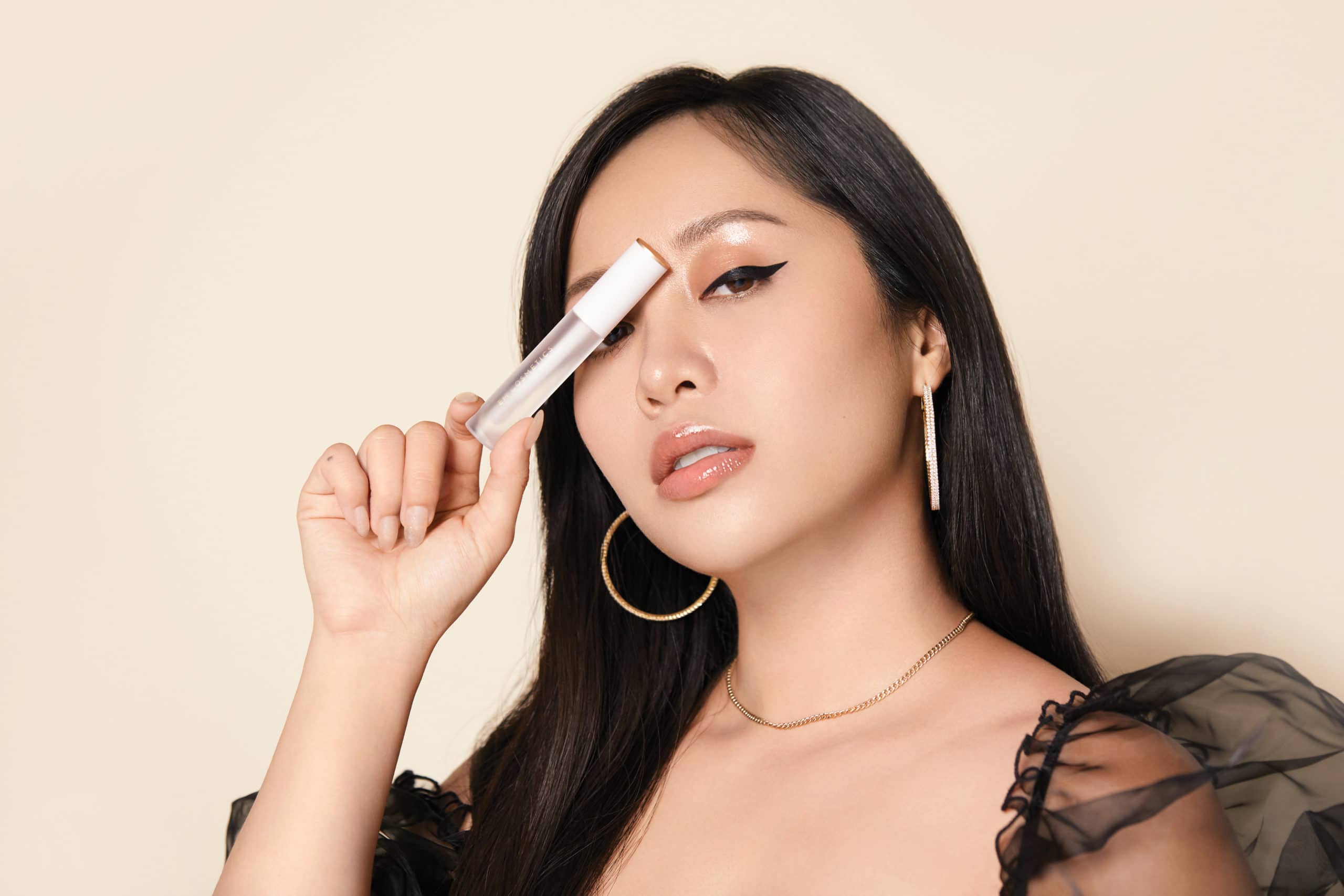There are very few people in the world that can talk about makeup, entrepreneurship, and cryptocurrency like Michelle Phan.
Michelle has grown a loyal base of supporters, numbering over 8.9 million subscribers on YouTube today, with her makeup tutorial videos that have collectively racked up over a billion views.
In 2011, Michelle co-founded IPSY, a subscription-based company that delivers monthly boxes of beauty samples to an estimated 1.5 million subscribers per month. The company has raised a total of $103.2 million from high-profile investors such as Sherpa Capital and TPG Growth, valuing the company at $800 million.

Along the way, Michelle regularly revisited her relationship with money and wealth as something more intimate than just numbers. She talks about money at a conceptual level, and educates herself on monetary policy and economic theory. She’s also appeared on Bitcoin podcasts, co-hosted an interview with former Presidential candidate Andrew Yang, and interviewed with CoinCentral (hey, that’s us!)
Recently, Michelle joined Pathfinder (Founders Fund’s early-stage investment vehicle), Ashton Kutcher, and Guy Oseary in a nearly over-subscribed $3 million Seed II round for Lolli, a service that allows users to receive rewards in Bitcoin while shopping at one of Lolli’s participating retailers.

A philosophical attraction to decentralization and self-sovereignty connects the dots between her entrepreneurial endeavors, something that may have developed during Michelle’s formative humble experiences as the daughter of Vietnamese immigrants in the United States.
Before the success and accolades such as a Streamy ICON award and making the Forbes 2015 30 Under 30 list in Art and Style category and Inc’s 30 Under 30 Coolest Entrepreneurs of 2015, before being an “influencer” was a lucrative career, Michelle could be described as the “bashful teenage daughter of impoverished Vietnamese refugees, and sometimes bullied at her high school in Tampa.“
Like many first-generation children of immigrants in the States, Michelle emulated a persistent work ethic in the pursuit of a better life without the benefits of growing up with a family with established professional and social connections.
She found solace in the day-to-day grind and hustle. From selling candy bars to blogging, Michelle quickly learned the value of a dollar. When she uploaded her first video to YouTube in 2007 at 19 years old, she encountered the powers of the digital economy, even if it was just 25 cents per week from her videos.

In 2011, one of Michelle’s friends brought his gaming rig over explained his excitement about using it to do a variety of things: gaming, rending images, and mining Bitcoin.
“This when I first heard about Bitcoin, and I was curious,” reminisces Michelle. “After that, I looked it up online. I saw lots of naysayers, people calling it fools gold. My first impression was that it was a trend.”
Like many Bitcoin advocates that once had a negative first impression, Michellelook backs at her first encounter with Bitcoin with a laugh.
Michelle kept the Bitcoin idea in her back pocket and focused on building her beauty empire. Fast-forward to late 2015, about the time IPSY its $100 million Series B and Michelle started racking up prestigious awards.
“It was until late 2015 that I was getting serious about building my assets,” says Michelle. “I was interested in building generational wealth. I came from an immigrant family, and I wanted to provide for the next lineage of my family. That’s when I got interested in gold. I watched some videos about how those people who held gold and precious metals in the Depression in the 1930s were able to provide for their family.”
“I also started watching a lot of conspiracy videos,” Michelle laughs. “I must have thought the world was going to end. I eventually found the “digital gold” of Bitcoin. I thought I should at least diversify, at least have 1% of my holdings in some digital asset.”
Once the satoshis hit her wallet, however, Michelle was converted into a voracious student of digital assets and a Bitcoin advocate.
“It’s about having skin in the game,” says Michelle. “When you actually have satoshis, you want to see it grow. You want to understand it better. I decided I wanted to educate myself and learn about the Bitcoin community. I would frequently go on Bitcoin Reddit. I was able to learn a lot.”
Michelle was brought to revisit her relationship with money in a relatively short time frame– she essentially went from working at her mother’s nail salon to the cover of Forbes in under 10 years. Her goals of financial wealth and taking care of her mother were met, but something was missing.
In early 2016, Michelle dropped everything and went on a nine-month globetrotting hiatus. Taking a step back away from producing regular YouTube content and running several projects gave Michelle more time to herself, and she spent more time learning about the word and eventually Bitcoin.
Michelle’s Foray into Cryptocurrency:
Through her self-education, Michelle has a favorite: Saifedean Ammous’s book The Bitcoin Standard. It was indirectly through Ammous that Michelle connected with her newest investment: Lolli.
“I messaged Saifedean on Twitter to thank him for writing the book,” Michelle recalls. “Since I followed him, he’s been DMing me new seminars. One day, he recommended I check out Lolli and talk to the Founder Alex Adelman. I knew it was the right company for me to invest in.”
Michelle looks back at the countless opportunities to invest in and promote a project in the cryptocurrency space but just couldn’t find a fit.
“I had met with a lot of people, CEOs of different exchanges,” says Michelle. It didn’t make sense for me to promote them. Yes, they make it easier to buy cryptocurrency, but at the end of the day, it’s another wallet you don’t really have full ownership over– kind of like a bank. When you have Bitcoin, you should be your own bank, I believe that’s kind of the point. I believe in the decentralization of power.”
10 years ago, I was ridiculed for quitting my job to pursue my YouTube channel. No one saw the potential in the platform like I did.
Years later, I was ridiculed again for investing in BTC and ETH.
I like having the last laugh ????
— ???? (@MichellePhan) August 19, 2018
Lolli, according to Michelle, made the most sense to her because she can see herself using it, as well as ultimately a base of customers similar to her prior successful entrepreneurial endeavors.
“I love shopping, and I love getting rewards (like Honey),” says Michelle. “I know a lot of women do as well. I also feel that many of them aren’t comfortable taking that financial risk to buy Bitcoin. It’s foreign to them. Earning rewards is something they’re familiar with. They’re rewarded with satoshis on the side. If you don’t want to stack sats yet, you can still do so at a smaller level.”
2020 Investment Theory: Educate Yourself, Be the Customer
As an investor and cryptocurrency advocate, Michelle sees the vague and hazy post-pandemic road ahead with an optimistic lens.
“The pandemic couldn’t have provided a better set up for cryptocurrency,” comments Michelle. “The Fed is printing trillions of dollars, which could lead to rapid inflation. A gallon of milk could cost $12, and people are going to ask what happened to their money. That’s going to drive a lot of interest to Bitcoin.”
Michelle views the fact that hundreds of millions of people around the world at home as an extremely productive and empowering learning opportunity.
“Every person in this world is giving their time for money in one way for another,” says Michelle. “It’s ridiculous most people don’t know about money. People have a lot of time on their hands, and now is a great chance to be exploring this crazy world. Monetary policy is changing all the time, but the Bitcoin protocol is very simple. It follows Austrian economics. The more people learn more about money, the more they can invest their time and energy into something of value.
In order to spot the best opportunities ahead, Michelle advises entrepreneurs to put themselves in the shoes of their consumers.
“The official number of people claiming unemployment is around 30 million and rising,” says Michelle. “That’s only counting people that have applied, not the ones that aren’t able to because the sites are crashing or just haven’t had the chance to. So, there will likely be a lot of people without disposable income.”
“If they cut back on disposable spending items, they may spend more on essentials. Also, people will want to stay at home. I think there’s going to be some sort of trauma with going back out. [Entrepreneurship] is going to be about capitalizing on those transitions. Be the customer yourself and work your way up.”
Looking Ahead: Final Thoughts with Michelle
Michelle keeps herself entertained with passion and self-education.
“I find it very interesting that there are lots of billionaires and immense amounts of wealth moving to Bitcoin,” notes Michelle. “I mean, just this week Paul Tudor Jones said he has almost 2% of his assets in Bitcoin to hedge against risk, and he’s pretty conservative with his investments. If you have big financial titans and thought leaders jumping into Bitcoin, that could be huge. Imagine the impact Buffet saying he’s going to start buying Bitcoin will have on markets. I’m interested to see who starts converting.”

Michelle Phan embodies a bit of the traditional American dream with a dash of modern digital zest. The success story of someone powering up their laptop (or smartphone) and launching a million-dollar company is no longer viewed as a surreal outlier event. Today, it’s commonplace.
Hundreds of thousands of content creators spanning YouTube, Twitter, Instagram, Facebook, Twitch, and now Tik Tok are earning billions of dollars per year from viewers that would have likely watched a tube TV just a few decades ago.
Billion-dollar completely remote (decentralized) companies are coming out of the woodwork, attracting top talent that would have likely walked into a JP Morgan or Goldman Sachs a few decades ago.
Michelle may have evolved well past any of her financial concerns as a teenager, but she’s maintained a strong relationship with money at a philosophical level.
“When you see what’s happening in the world, even at a government level, you see people that are positioned to take their power back,” says Michelle. “Bitcoin is sovereign money made for free people, which sounds a lot like the American ethos to me.”







